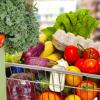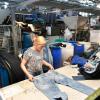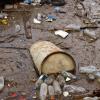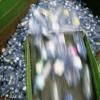Dutch consumers can eat healthier and more environmentally sustainable for the same amount of money
The Dutch diet can be healthier and more environmentally sustainable without costing consumers more money. This holds for all socio-economic groups in the Netherlands. This concludes Reina Vellinga (RIVM) in her doctoral thesis. Even with minor adjustments, our diet becomes much healthier and with less impact on the environment.








